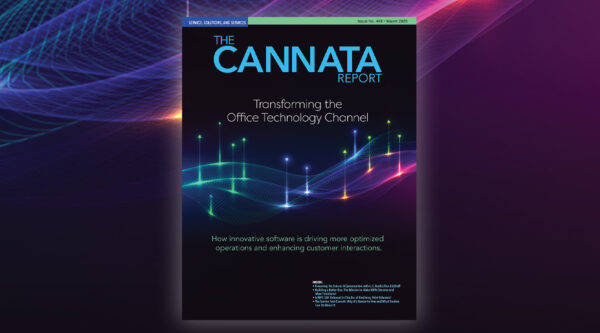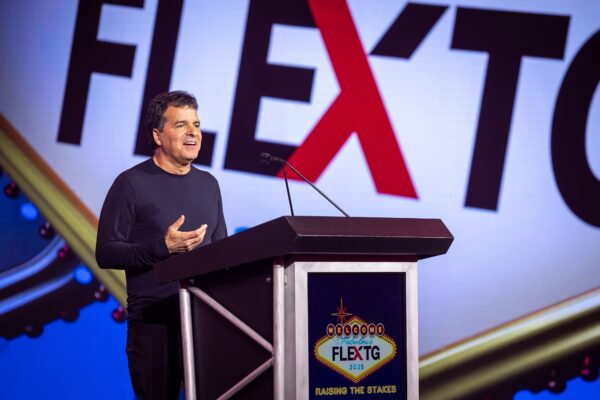Qualpath’s Kevin DeYoung discusses what’s next for the dealer channel, the OEMs, and the industry in the second of a two-part interview.
When we last left Kevin DeYoung, president of Qualpath in Pompano Beach, Florida, he was sharing how his dealership was primed for the pandemic and how it was still meeting the needs of its customers. In this installment, he looks at the potential long-term fallout from the pandemic on Qualpath and our industry.
“It’s a different world, Scott. This is like a zombie movie.”
DeYoung is right about that in so many different ways.
Game Changer
I interviewed DeYoung the week before an April 29th Keypoint Intelligence webinar that presented an updated outlook on print volumes for 2020 and 2021. The market research firm predicts the loss of 148 billion pages (30%) in 2020 and another 108 billion in 2021 as a result of the pandemic. That’s not surprising to DeYoung.
“Some print volumes are going to be lost forever,” he acknowledged.
For a dealership like Qualpath with a vibrant MPS business, this crisis is a game changer.
“I wonder how managed print services morphs,” said DeYoung. “One way is finding solutions to manage at-home workers as it relates to their devices, which is a little bit more complex because of the monitoring software that [currently] exists.”
He expects to see more pressure to know what people are printing and from what devices they are using to print. One might view that as a positive development for print management solutions providers. DeYoung also sees more interest in security and decentralized control and reporting in the MPS world.
“We all have to evolve,” he said. “If we’re smart, we get involved in file sharing–dissemination of images across the boundaries of an organization.”
The current situation has also placed a bigger burden on IT staff in companies like DeYoung’s who have had to mobilize to accommodate remote workers. Based on conversations with other dealers and OEMs, dealers with a managed IT business will be well-positioned to accommodate whatever comes next when the pandemic is over.
DeYoung also expects to see tremendous pressure on the OEMs in the MFP space as print volumes nosedive like never before.
Back to Work
Another potential complexity that dealers may have to contend with is what happens when people return to the office. Will they bring the smaller devices that were installed in their homes with them?
“We moved quite a few printers into our customer’s employee’s homes,” revealed DeYoung. “You’re going to see reinstalling printers, you’re going to see a change in volumes, it’s almost going to be like a reset.”
That reset will also have to accommodate those workers who will continue to work from home either full time or who are splitting their time between the office and home after the pandemic. Again, here’s where a managed IT business will become even more critical.
If more employees end up working from home the real estate industry will be under tremendous pressure as businesses question the need to spend the same kind of money they were spending before the pandemic on office space. DeYoung predicts landlords will struggle to fill this office space.
As employees grow more accustomed to working from home, DeYoung expects some will put pressure on their employers to continue to work from home when the pandemic is over. He’s already picking up signals from his employees, some of whom are happy not to have to make that daily commute to the office.
“They like working in their pajamas,” he said. “They like being able to take a break and walk over to the laundry room and do their clothes, the things that happen when you work at home. People like me would like to pretend that [our employees] are working eight hours a day full bore.”
As long as the work gets done, employers like DeYoung who have been working from home themselves may be more open to the concept of a remote workforce.
Ch, Ch, Ch, Changes
DeYoung is well aware that things have changed and have likely changed forever regarding how we interact, socialize, work, and process information.
“We’re going to steal from the software service industry where we start doing presentations, proposals, and reviews via conference calls. That’s going to become the new norm.”
But one thing he doesn’t see disappearing is the centralized office.
“It will always remain for a variety of reasons, but it will be tested,” concluded DeYoung.
Access Related Content
Visit the www.thecannatareport.com. To become a subscriber, visit www.thecannatareport.com/register or contact cjcannata@cannatareport.com directly. Bulk subscription rates are also available.




